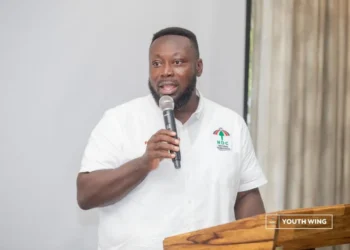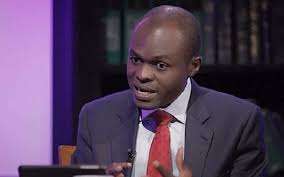The return of the National Democratic Congress (NDC) to the Inter-Party Advisory Committee (IPAC) has been a significant development in Ghana’s political landscape.
Jean Mensa, Chairperson of the Electoral Commission (EC), has expressed her satisfaction with the NDC’s return, highlighting the constructive contributions the party has made to the country’s electoral system. This move marks a pivotal moment in the relationship between the EC and one of Ghana’s main political parties, promising improvements in the democratic process.
The NDC’s absence from IPAC meetings since March 2021 was a notable gap in the political dialogue necessary for maintaining a robust electoral system. Their return, facilitated by interventions from the National Peace Council (NPC), signifies a renewed commitment to collaborative governance.
“I think it is great to have the NDC back. As you yourself mentioned they have been missing at IPAC for a long time. We are well aware that they are very important stakeholders in our body politics. They are the main opposition, and they constitute a formidable force. It is a great benefit to all of us that they have returned to IPAC.”
Jean Mensa, Chairperson of the Electoral Commission (EC)
According to the EC chairperson, since rejoining IPAC, the NDC has provided valuable feedback that has influenced the EC’s recent activities, including the just-ended registration exercise.
“The discussions have been going on very well. They have been very constructive. It has been valuable feedback that has come from the NDC as well as some of the other parties.
“So, for the just-ended registration exercise, there was valuable feedback that the NDC brought on board and we have considered quite a number of ideas and suggestions and we have taken them on board so we continue to engage constructively.”
Jean Mensa, Chairperson of the Electoral Commission (EC)
This positive engagement highlights the potential benefits of inclusive dialogue among political stakeholders. The NDC’s input has not only been acknowledged but also integrated into the EC’s processes, demonstrating the importance of multi-party collaboration in enhancing electoral integrity.
The NPC played a crucial role in mediating the return of the NDC to IPAC. By facilitating dialogue and addressing the party’s concerns, the NPC underscored the importance of consensus-building in Ghanaian politics.
The NDC’s National Chairman, Johnson Asiedu Nketiah, acknowledged the NPC’s efforts, stressing the necessity of restoring IPAC to its intended role as a platform for inclusive and constructive dialogue.
This mediation effort is a testament to the NPC’s commitment to peace and stability in Ghana. It highlights the vital role that neutral bodies can play in bridging divides and fostering cooperation among political adversaries.
History of Tension
The NDC’s boycott of IPAC meetings stemmed from grievances related to the 2020 general elections. The party accused the EC of bias and lack of transparency, which culminated in their refusal to attend an IPAC meeting scheduled for April 21, 2021. In a statement, the NDC expressed their dissatisfaction, saying,
“The National Democratic Congress (NDC) declined an invitation by the Electoral Commission of Ghana to attend an IPAC meeting to review the 2020 Parliamentary and Presidential Elections.
“The party took this decision because of the lack of candour, odious duplicity, and open bias that the Jean Mensah-led Electoral Commission displayed in favour of the New Patriotic Party in the conduct of the 2020 general elections.”
The National Democratic Congress (NDC)
This period of tension highlighted significant challenges within Ghana’s political framework, emphasizing the need for trust and transparency in the electoral process. The NDC’s allegations underscored a deep-seated mistrust in the EC, posing a threat to the democratic principles that underpin Ghanaian society.
The reintegration of the NDC into IPAC marks a new chapter in Ghana’s electoral history. It reflects a collective recognition of the need for all political parties to engage in dialogue and work together towards common goals. This development is a positive step towards strengthening the country’s democratic institutions and ensuring that the electoral process is fair, transparent, and inclusive.
Jean Mensa’s optimistic view of the NDC’s return underscores the potential for positive change. The EC’s willingness to incorporate feedback from the NDC and other parties demonstrates a commitment to improving the electoral system. It is a clear indication that, despite past grievances, there is room for reconciliation and progress.





















